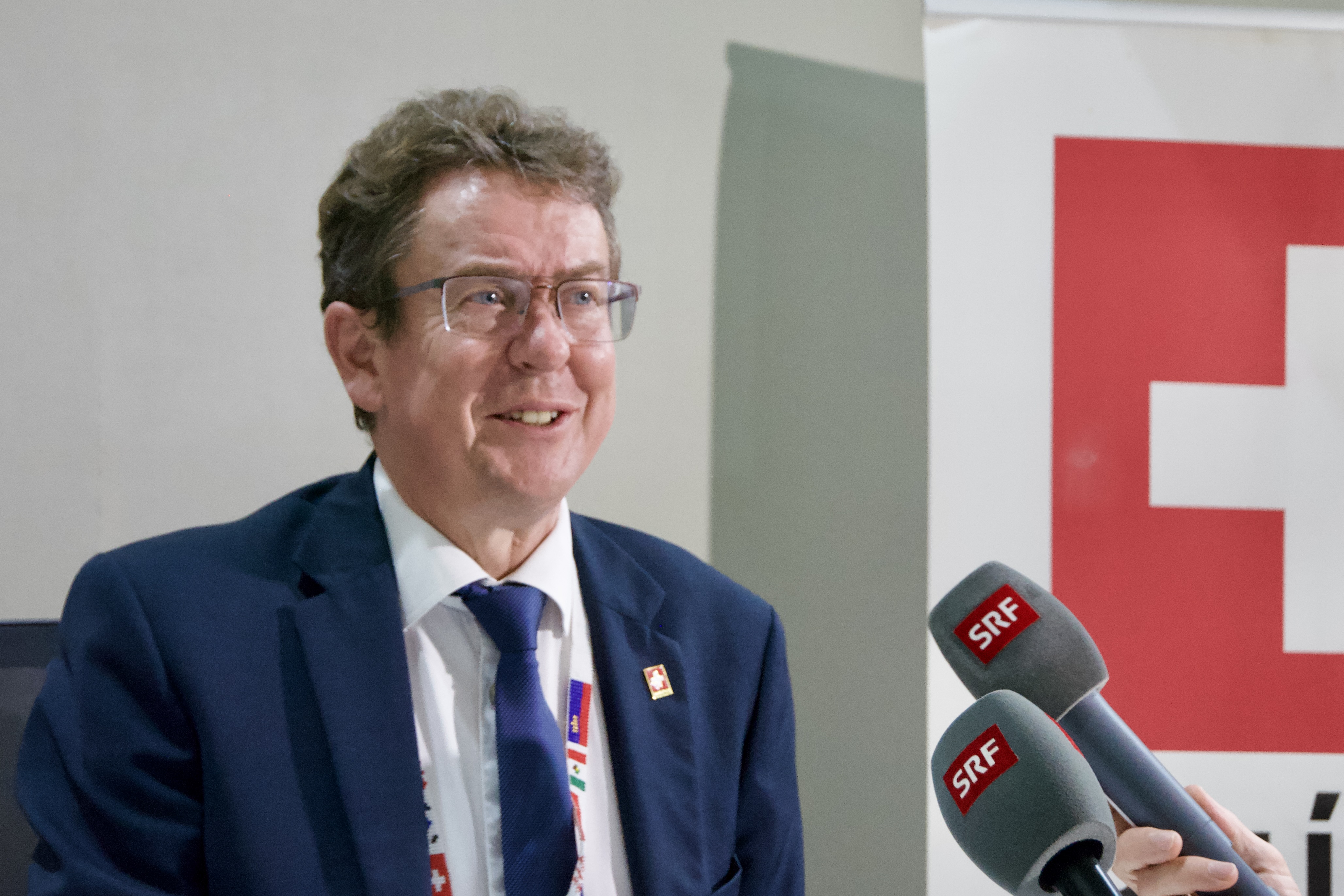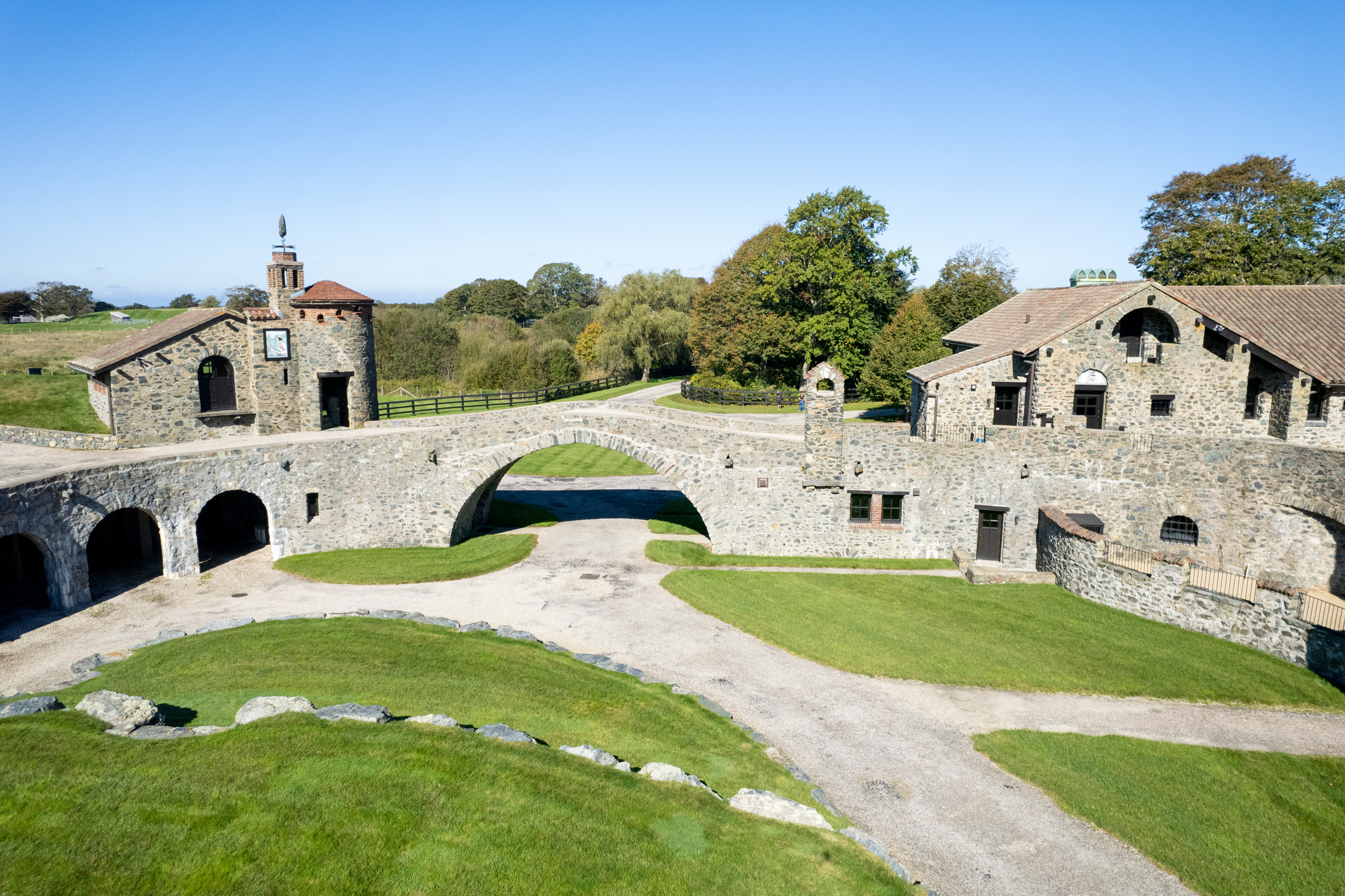
Swiss scientists and virtual reality focus on shrinking glaciers
As climate researchers predict virtually ice-free Alps by 2100, a virtual reality exhibition helps people envision how the largest Swiss glaciers will shrink under the effects of global warming. (SRF/swissinfo.ch)
A recent study External linkfrom a team in Switzerland has calculated that about 50% of Alpine glacier volume will disappear between 2017 and 2050 – pretty much regardless of how greenhouse gas emissions are cut. After that, it depends on how the climate evolves.
A travelling exhibition is now trying to illustrate those effects of climate change on nature and the landscape. Equipped with virtual reality glasses, visitors to the Expedition 2 GradExternal link exhibition embark on time and space travel in a virtual world around the Great Aletsch Glacier in the Bernese Alps. The use of VR means that people can experience the Aletsch region as it looked generations ago, and how it could look in the future.
The Swiss team’s study, published in The CryosphereExternal link on Tuesday, states that the current “high-emissions scenario” would bring more rapid warming over the next decades.
“In this pessimistic case, the Alps will be mostly ice free by 2100, with only isolated ice patches remaining at high elevation, representing 5% or less of the present-day ice volume,” says study co-author Matthias Huss, a researcher at federal technology institute ETH Zurich.External link Global emissions are now just above what is projected by this scenario.
Swiss glaciers have already melted considerably. Over the past 170 years, the total ice volume has shrunk from 130 to around 52 cubic metres.
The Alps in VR
The VR exhibition tries to help people grasp the real-life implications of a 2 degree Celsius increase in temperature. This is the limit suggested by the 2015 Paris Climate Agreement.
The exhibition is on show at the Zernez National Park Center in south-east Switzerland until August 22. After that it will be featured at the World Nature Forum in Naters in canton Valais from September 10, 2019, to January 23, 2020.



























You can find an overview of ongoing debates with our journalists here . Please join us!
If you want to start a conversation about a topic raised in this article or want to report factual errors, email us at english@swissinfo.ch.